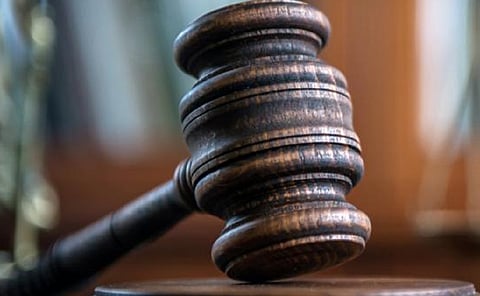

The National Green Tribunal (NGT) has directed the commissioner of the Municipal Corporation of Jalandhar to submit a time-bound action plan via affidavit in order to achieve the goal of closing the gap in daily waste treatment and addressing legacy waste remediation.
The Municipal Corporation has also been instructed to resolve the grievance of the applicant, Tejasvi Minhas, concerning the garbage dump in Model Town, Jalandhar. The action plan should detail the steps taken so far and specify the source of funds to achieve the target, according to the order dated August 27, 2024.
In a report filed on August 20, 2024, Punjab Pollution Control Board (PPCB) acknowledged that unsegregated waste was being dumped at the Model Town site, with no bins or compactors provided by the Municipal Corporation. Furthermore, solid waste is dumped openly in several secondary locations throughout the city.
PPCB has imposed an environmental compensation of Rs 4.5 crore on the Municipal Corporation, Jalandhar, for violating the Solid Waste Management Rules, 2016, the report added. About 500 tonnes per day (TPD) of solid waste is generated within Jalandhar’s municipal limits, of which only 120 TPD is treated, Municipal Corporation informed the tribunal.
The remaining 380 TPD contributes to the legacy waste. The court was also informed that the legacy waste had been moved to a dumpsite in Haryana.
NGT on August 27, 2024 expressed dissatisfaction with the delay in submitting a report by the district magistrates (DM) of Shamli and Saharanpur in Uttar Pradesh concerning the pollution and degradation of Khokhari river. The court has ordered both DMs to be present virtually at the next hearing, scheduled for December 6, 2024.
National Mission for Clean Ganga (NMCG) has requested time to seek instructions and file its response via affidavit.
The applicant, Amit Kumar, raised concerns about the pollution and degradation of Khokhari river, which is said to be a tributary of Yamuna river, specifically within the districts of Shamli and Saharanpur.
Uttar Pradesh Pollution Control Board (UPPCB), in its report dated April 29, 2024, described the “pathetic condition of the river” and recommended measures for its restoration.
On May 10, 2024, after reviewing UPPCB’s report, NGT observed that the photographs included in the report clearly depict site-specific waterlogging in the river near Lakhnoti village, discharge from nearby rural areas into the river, and solid waste dumping near it.
The report also highlighted the encroachment of agricultural land along the river near Sakerpur, Saharanpur, the encroachment of residential houses on the river in Chausana and Shamli and the encroachment of agricultural land on the dried-up portion of the river near Kemalpur, Shamli.
Additionally, the report mentioned a dry riverbed with macrophytic vegetation near Kertu, Shamli.
“The report clearly stated that the river used to flow perennially around 15 years ago to meet the basic rural domestic and agricultural freshwater needs, but inspection revealed that the waterbody is now devoid of water discharge,” the court remarked.
UPPCB, on August 21, 2024, submitted a restoration plan prepared by irrigation department, drainage khand, covering Shamli, Muzaffarnagar and Saharanpur. However, there is no evidence on record that the plan has been approved by the authorities or that the requisite funds for its execution have been sanctioned.
While the report indicated that the plan was forwarded to the respective DMs of Shamli and Saharanpur, their actions on the plan are not on record, the court pointed out.
On August 27, 2024, NGT heard the case regarding unauthorised and illegal constructions on the floodplain of Yamuna river in Prayagraj, Uttar Pradesh, by religious organisatioon International Society for Krishna Consciousness (ISKCON) Prayagraj.
The Prayagraj Development Authority and ISKCON Prayagraj have been ordered to submit their responses within four weeks. The NGT will next hear the case on December 5, 2024.
In its response dated August 22, 2024, UPPCB reported that three buildings are being constructed on the northern side of the Yamuna River, approximately 43 metres from the riverbank stairs.
UPPCB’s counsel stated that action will be taken against any authority or person responsible for or permitting construction within the floodplain zone of the Yamuna River and the agency will ensure that no further construction takes place in this zone.